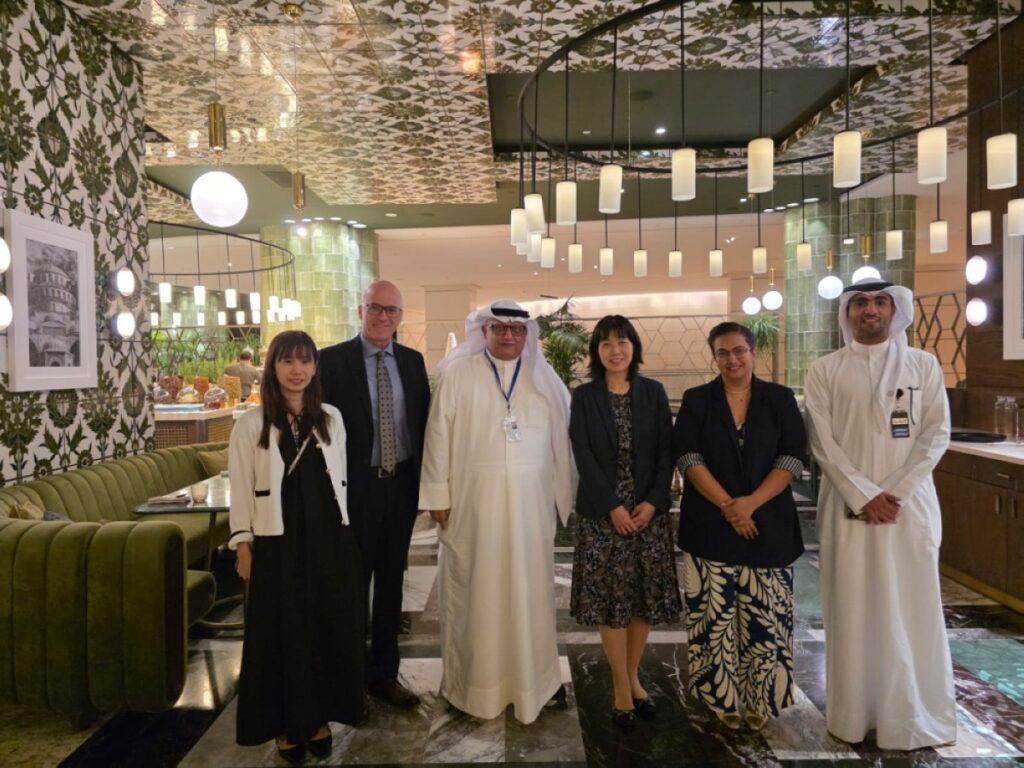KUWAIT: Japanese Foreign Minister Takeshi Iwaya paid his first official visit to Kuwait to attend the Japan-GCC Foreign Ministers’ Meeting, marking a new chapter in Tokyo’s engagement with the Gulf region. The meeting, hosted by Kuwait as the current GCC chair, was the first of its kind since 2023. Speaking to the press, Deputy Press Secretary at the Japanese Ministry of Foreign Affairs Kaneko Mariko emphasized that Minister Iwaya’s visit reflects Japan’s commitment to deepening cooperation with Kuwait and other GCC countries.
She stated, “Japan and Kuwait share fundamental values and principles, including the importance of a free and open international order based on the rule of law.” Kaneko revealed that during his stay, Minister Iwaya held courtesy meetings with Kuwait’s Crown Prince and Prime Minister, in addition to taking part in the Japan-GCC ministerial session. Discussions centered on bilateral cooperation in energy, water security, and infrastructure, as well as broader regional and international issues.
Energy remains a cornerstone of relations, with Kuwait ranking as Japan’s third-largest crude oil supplier. Kaneko underscored Japan’s gratitude for Kuwait’s role as a stable energy partner and stressed Tokyo’s willingness to support the Gulf nation’s green and economic transition through Japanese technology, including renewable energy, electricity generation, and water desalination.
She noted that dialogue on electricity and water supply signaled progress in bilateral cooperation, noting “Water is a vital resource in this region, and Japanese companies have the technology to help ensure stability in supply.” Beyond economics, Japan reaffirmed its interest in regional security and maritime stability. While no defense agreements with Kuwait were signed, Kaneko highlighted Japan’s long-standing naval presence near Oman for anti-piracy and counterterrorism operations, emphasizing shared interests in free and open navigation.
On Gaza, Kaneko pointed out that the humanitarian crisis in Gaza also featured prominently in the talks. Minister Iwaya reiterated Japan’s steadfast support for a two-state solution and announced Tokyo’s continued assistance to the Palestinian people. She added “Japan firmly supports a two-state solution, where (Zionist entity) and a future Palestinian state can live side by side in peace and prosperity. Since 1993, Japan has provided around $2.6 billion in assistance to the Palestinians, including $230 million in humanitarian aid since October 2023 alone.”
She explained that Japan’s approach to supporting Palestinians is based on four key principles, improving living standards through infrastructure and aid to vulnerable groups such as refugees, women, and children; promoting peace through economic and social self-reliance; strengthening the administrative capacities of Palestinian institutions; and fostering sustainable economic growth through balanced long-term development projects. Japan also promoted its regional initiative, the East Asia Cooperation for Palestinian Development (C-PAD), which brings together ASEAN and Asian partners to support Palestinian governance, agriculture and small industries.
Kaneko also highlighted the “warm friendship” between Japan and Kuwait, recalling Kuwait’s vital aid after Japan’s 2011 earthquake. She pointed to cultural and people-to-people exchange as growing dimensions of bilateral ties, noting Kuwait’s active participation in Expo Osaka, where its pavilion has been “very popular.” On the issue of visa facilitation for Kuwaiti visitors to Japan, Kaneko acknowledged concerns and pledged to review procedures to encourage greater tourism and exchange. “Japan welcomes more people from Kuwait, and we will look into ways to make the process smoother,” she concluded.

